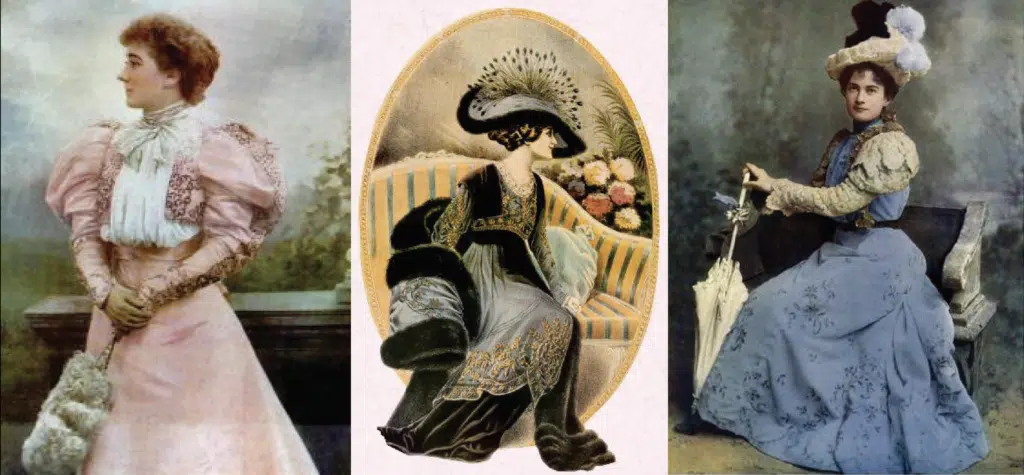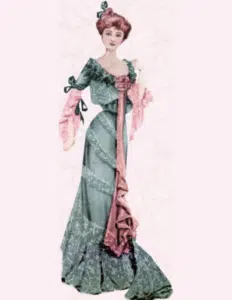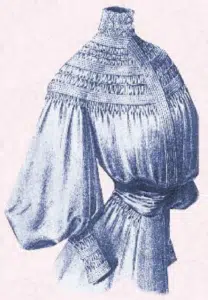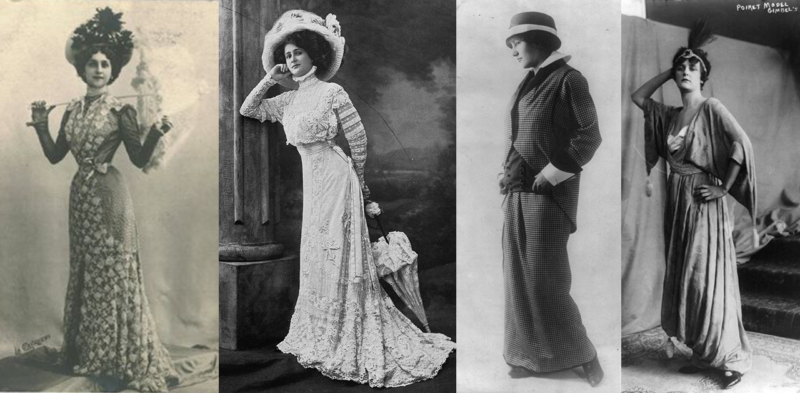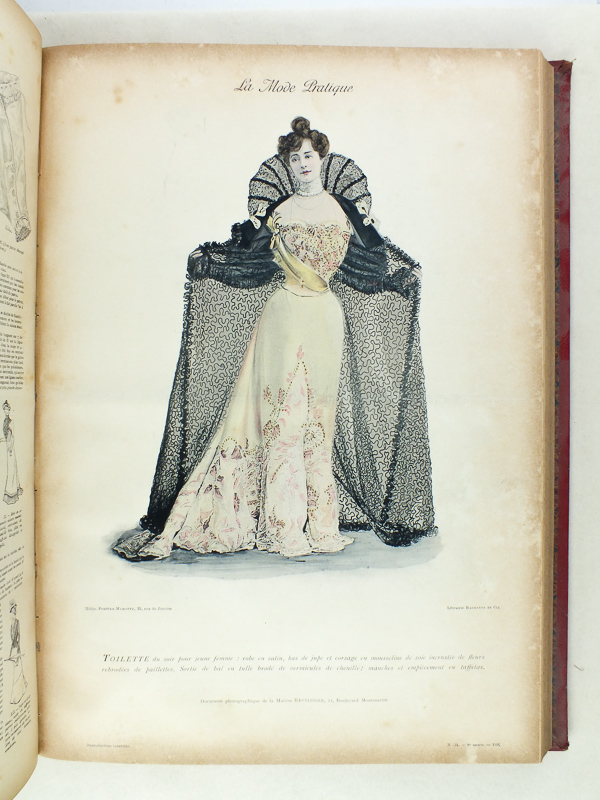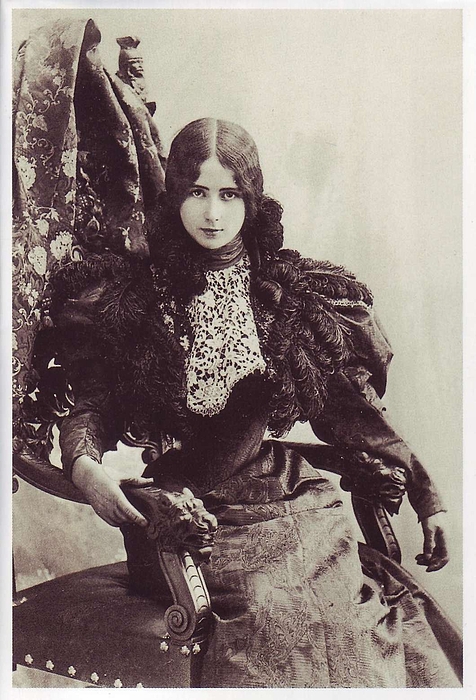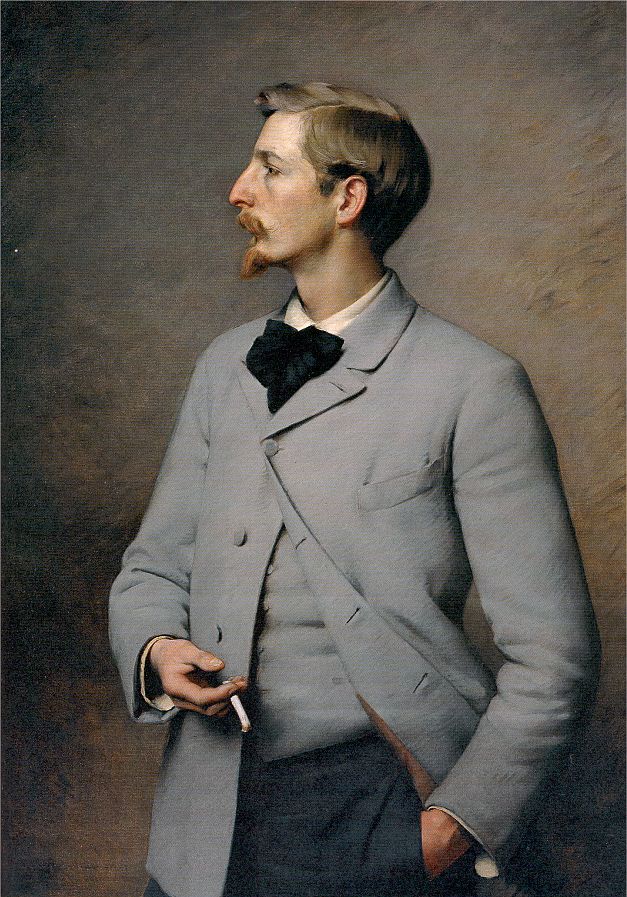Character SheetName: Joséphine “Fifi” Baptistine L’Hôte
Age: 23
Sex: F
Profession: Scholar
Interests: Although her education was quite thorough, in her time in Lyon, Joséphine has come to find her greatest passion lies in the young field of Linguistics, and has pursued this course of study eagerly. Beyond the realm of academics, Joséphine’s independent tastes are still young, and therefore quite subject to change. But as she delves deeper into the worlds of academia and independent living, there could well be any manner of matters that might grab her passions...
Personality: Joséphine L’Hôte is nothing if not an eccentric woman. At once bearing with her the noble arrogance of posture that befits a wealthy planter, and the dubious social position of being a white Créole in a world increasingly reticent to recognise such a thing as a valid category, Joséphine is well-familiar with navigating the many curious pitfalls of the Fin du Siècle’s social world. In many ways a foreigner both in the increasingly Anglicised Louisiana and in France for various reasons, combined with the forceful exposure by nature of her place and station of birth to the social complexities of the world that many could so easily miss, combined with her keen mind and newfound intellectual freedoms, Joséphine offers a shockingly open mind for someone who appears to the world as she does. With that said, she bears a formidable temper, like her father before her, and a passionate propensity for frustration. More than a few difficult puzzles have known her wrath. And underlying this, though she is formidably disciplined in well-trodden paths, when it comes to the unfamiliar—places where her parents’ intense oversight has not carved the way clearly—, Joséphine navigates without inhibition, without metric or regard for the matter’s or her very own limits. When presented with just the right opportunity, the maze of passions and proclivities can unite, and the disciplined student and naïve academic have potential to merge to form a researcher unbound.
Appearance: Background: Joséphine L’Hôte was born in early 1878 as the only child of Monsieur Joséph L’Hôte
fils and Madame Léopoldine L’Hóte (née Vigouroux). As a young child, she and her mother were subjected to the Yellow Fever, and, though both survived, Léopoldine has forever since been in perennially ill health. In some respects, Joséphine has thereafter lived a relatively easy, and entirely straightforward life, being the daughter of a wealthy businessman.
But a more nuanced story would clarify much about Joséphine as a person. As for her father, he is the current proprietor of L’Hôte Lumber, sharing ownership with his younger brother, one M. Damien L’Hôte. The L’Hôte brothers have inherited and cultivated a prosperous lumber enterprise from their father, who has, for over a decade now, been bedridden due to a severe back injury, and placed in the care of the brothers’ younger sister, Mlle. Claudine, who remains, for this reason and others, a Catherinette numerous times over. The brothers, then, work to support the entire family, and make well of it. Where both are shrewd and competent in their own respects, Joséph
fils, hereafter M. Joséph, serves in a markedly more public capacity.
M. Joséph is a sociable man personally torn between his shrewdness as a businessman and his inexorable proclivities towards the fineries of life. In many respects, he finds himself torn by his very nature, be it the tension between business concerns and those of the family to which he and it belong, between his own dispositions, or towards his own views. This diarchic nature has done much to shape Joséphine’s life. In some areas, seemingly disharmonious elements produce an odd harmony. Most saliently of all, M. Joséph has seen to it that his daughter and his younger son alike have received thorough, rigorous education. On one account, as a man of younger money, he has a broad appreciation for the utility of education and holds to the rather Progressive notion that it is, in fact, important for all. But on another, in the end, he has been known to lament—to his own daughter, in fact—that his wife—her mother—received a less rigorous education simply for the fact that he finds this lesser level of education frustrating in a partner, and, that Joséphine would eventually ideally wed an intellectually sound man, she would be better to not be a bore.
Looking from M. to Mme. Joséph L’Hôte, one might initially wonder where their enduring common ground should be, if indeed it ever existed. Overtly, Léopoldine L’Hôte cannot be rightly said to hold the same genuine enthusiasm for a great many matters of high culture, preferring an assortment of entertainment sources which M. Joséph regards as thoroughly pedestrian on the whole, and has long struggled to summon patience for. However, though she lacks in entertainment of the matters themselves, she does hold a strong opinion that they are necessary inconveniences to undergo in order to maintain social ties. It is on this account of the importance of social ties that the two wholeheartedly agree. As a result, from an exceedingly young age, Joséphine has been given no recourse but to learn the ways of a good hostess, and learn them well.
Now, why is it that a woman so apparently disinterested in high culture would subject herself to it with stunning regularity? Looking back to the Vigouroux clan, Léopoldine’s relations have had a history which perhaps requires more attention than those of the L’Hôtes. Some generations ago, the ancestors of the Vigouroux line enjoyed an excellent station in Saint-Domingue—now Haiti, though they to this day refuse to even entertain the notion that it might be so—only to find themselves so fortunate as to have the opportunity to expel themselves rather than face the fate of many other of the island’s former overlords. Of course, let it not be said that the family was ever so readily discouraged as to reevaluate their business practices in light of one of history’s precious few successful slave revolts. Rather, like a number of their ilk, they found refuge in Louisiana, and they put their remaining coin into land, resuming their lifestyle with unrepentant immediacy. Some decades later, after no small amount of squabbling, infighting, and other such things between heirs of the mess of estates and investments the family had produced, Mme. Léopoldine’s maternal grandparents—M. François Vigouroux and Mme. Laetitia Vigouroux—definitively wiped their hands of the entire matter, on account of Mme. J. Vigouroux’s ailing health and increasing inclination to be free of the entire affair, a sentiment shared by M. Vigouroux, and made arrangements to walk away with money and investments and leave the plantation and remainder of the fortune to a cousin with whom the most enduring spell of the conflict was undertaken. It was perhaps some great measure of fortune that this decision was made in 1859.
Now, the question of how Léopoldine bore her grandparents’ name comes to mind. Here, the sense of pride carried within the lineage becomes more overt. Augustine Vigouroux, mother of Léopoldine, made the decision to pick a husband of social bearings that M. and Mme. François Vigouroux felt assuredly beneath her. However, Augustine was not dissuaded, and eventually a compromise was reached. Their children would take the Vigouroux name, lest they forfeit any inheritance. On some account, they regarded this as reasonable on the basis of the peculiar insistence that had arisen within the family that they held some manner of tie to the de Beauharnais family through the Vigouroux paternal line, for some of M. François’ elder siblings had chosen to flee to Guadeloupe rather than New Orleans those many years ago. That is to say, nobility by proxy of having family who were able to marry into nobility. Unreasonable, perhaps, but is it not also unreasonable to retreat to another colony to resume the same practices that led to one being revolted against and chased out from one’s previous place of residence?
This is to say, Joséphine L’Hôte comes from an eclectic lineage, and understanding this fact makes Joséphine herself appear far more transparent in her eccentricities and limitations. It was at her mother’s behest that she studied Latin and received a comprehensive religious education—the latter of which her father felt on some accounts quite simply wasted time altogether beyond a certain point. However, Latin itself was of keen interest to him, though English was as well, for it was by the utilization of the English language in addition to French that the L’Hôte business had remained competitive in the increasingly Americanized region. So Joséphine found herself studying French and Latin, but also English, for this practical measure of her father’s, and yet, as if to balance the practical with the impractical, she was also split down the middle with Classical and practical (e.g., business-oriented) educations, as if hiring extra tutors could force a child to learn faster. Whether or not it in fact did so, M. Joséph maintains firmly to this day that a childhood choked by and crushed under a truly intense education did his child well.
Combined with her mother’s rigorous routine of social matters and her father’s further insistence on supplementing every available moment of would-be relaxation with ensuring his child was adequately exposed to “proper culture”, it cannot be rightly said that Joséphine, in the course of her youth, ever meaningfully developed hobbies or found the time to nurture passions. Certainly, there are matters which she has enjoyed, such as Latin and arithmetic, and those she has found frustrating, most notably the practice of the overwhelming majority of the fine arts to which she has been exposed, but on the whole, there is little that has been cultivated in her life without an adult’s hand guiding it by hook or by crook. That is to say, Joséphine had, in the course of her development, scarcely enjoyed time to properly develop meaningful interests, or even deep friendships, for her mother’s engagements were less so suited to intimate arrangements and more so to keeping up appearances.
What can be said of Joséphine becomes most overt, then, in the aftermath of her débutante ball. At first, as a girl, Joséphine was by most accounts merely following in her father’s particularities when it came to the matter of men. Of course, on the other hand, with the rigorous schedule she found in the course of her life, there was scarcely much time to attend to the matter anyway. After secondary school, there remained no progress on the matter of marriage. Thus, even had she contested the matter, which she did not see fit to, Joséphine was off to college. Newcomb College, to be specific. Having to a degree exhausted extracurricular activities, Joséphine’s excess time became filled with another pursuit, one which she still regards with thorough ambivalence. If she had no suitors to attend to, then, according to M. Joséph, his daughter could contribute to the family business, and help foster its continued prosperity so that the next generations would be well cared-for. Although it certainly bore its benefits, time to socialize was scarcely one of them, and by her graduation from Newcombe, Joséphine had still scarcely found anyone, though not for lack of her mother’s trying.
It was at this point, then, that the question of will arose. To Mme. Léopoldine’s dismay, it appeared that Joséphine felt unready to marry, while M. Joséph bore a stunningly dim opinion of the overwhelming majority of potential matches Mme. Léopoldine had even offered. The family stood in deadlock on this matter for some time before a bold proposition between father and daughter won out. Joséphine, in the course of her studies at Newcombe, had found her fondness for Latin and historical studies, among other things, was sufficient that she had considered continuing beyond the bounds of education. Although she could scarcely be said to have had much free time, college, and some of the less-intensive administerial work her father had assigned her, had brought a slight bit of flexibility that allowed her the opportunity to consider, for the first time in her life, her own preferences. And to Joséphine, continuing education in specific areas of interest felt wholly comfortable, and quite sensible. Although Mme. Léopoldine deeply opposed the notion, M. Joséph offered his daughter some consideration upon her addition of her wish to study in France. For if there were no satisfactory Francophone suitors in Louisiana, she reasoned, would it not be best to look elsewhere, in a place with more Francophones than any other place in the world?
It was the Université de Lyon that received Joséphine L’Hôte’s petition to attend as a graduate student studying ancient languages and history under the Faculty of Letters, and it was in Lyon that the L’Hôtes saw off their eldest daughter to attend a higher level of education than M. Joséph himself had achieved. Although perhaps bittersweet at first, Joséphine has found the life of an academic most fulfilling, and has, over the past year, become increasingly reticent to even make a modest effort of procuring a courtship. Does Joséphine L’Hôte, Dr ès l., not indeed sound better than Mme. Unetel? The sound is ever-more titillating, to say nothing of the studies themselves. M. le Prof. Ferdinand Brunot has published his History of the French Language, and Joséphine finds herself ever more deeply fascinated by the impossible depths of learning. To the fire with soirées, the joy of life was in the books all along!
Vitality: 14
Rationality: 10
Spirituality: 10
(We will finish determining your other stats after we're done with the great game of knowledge)










